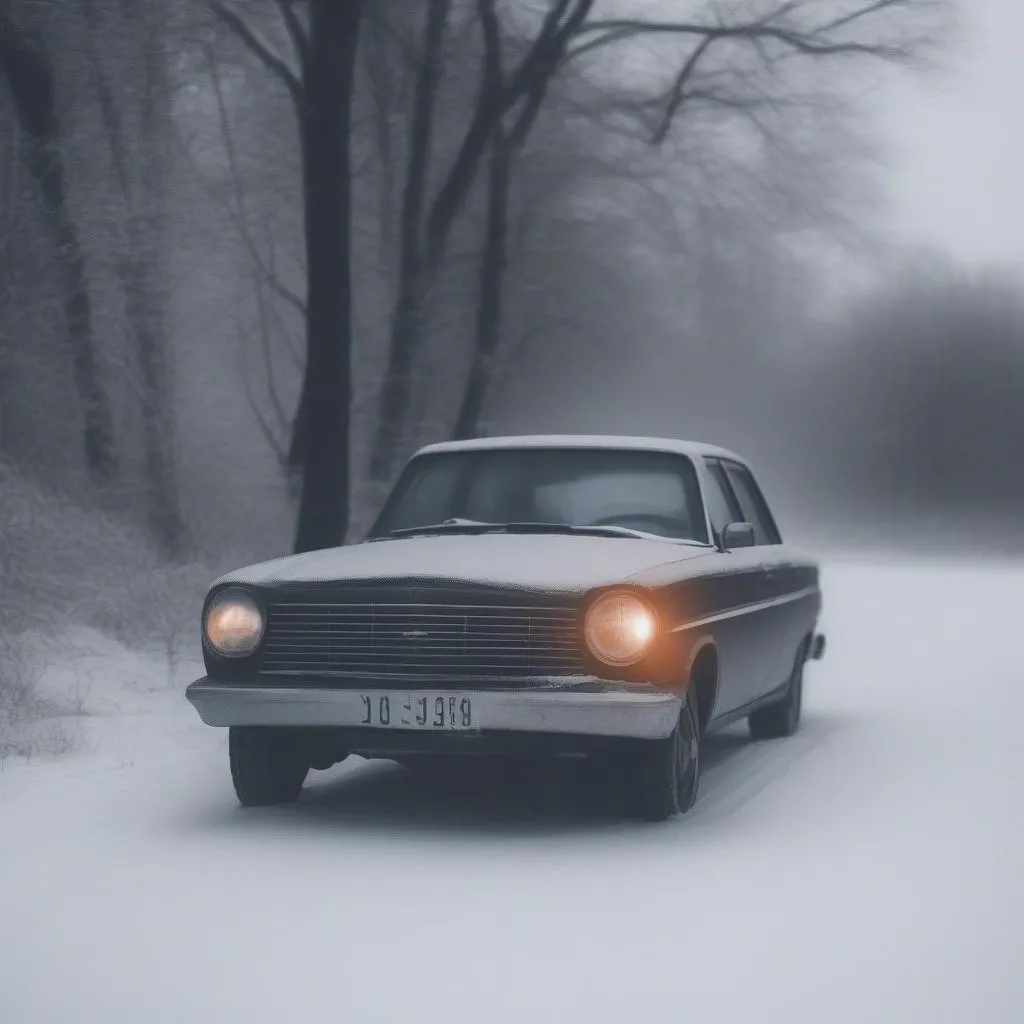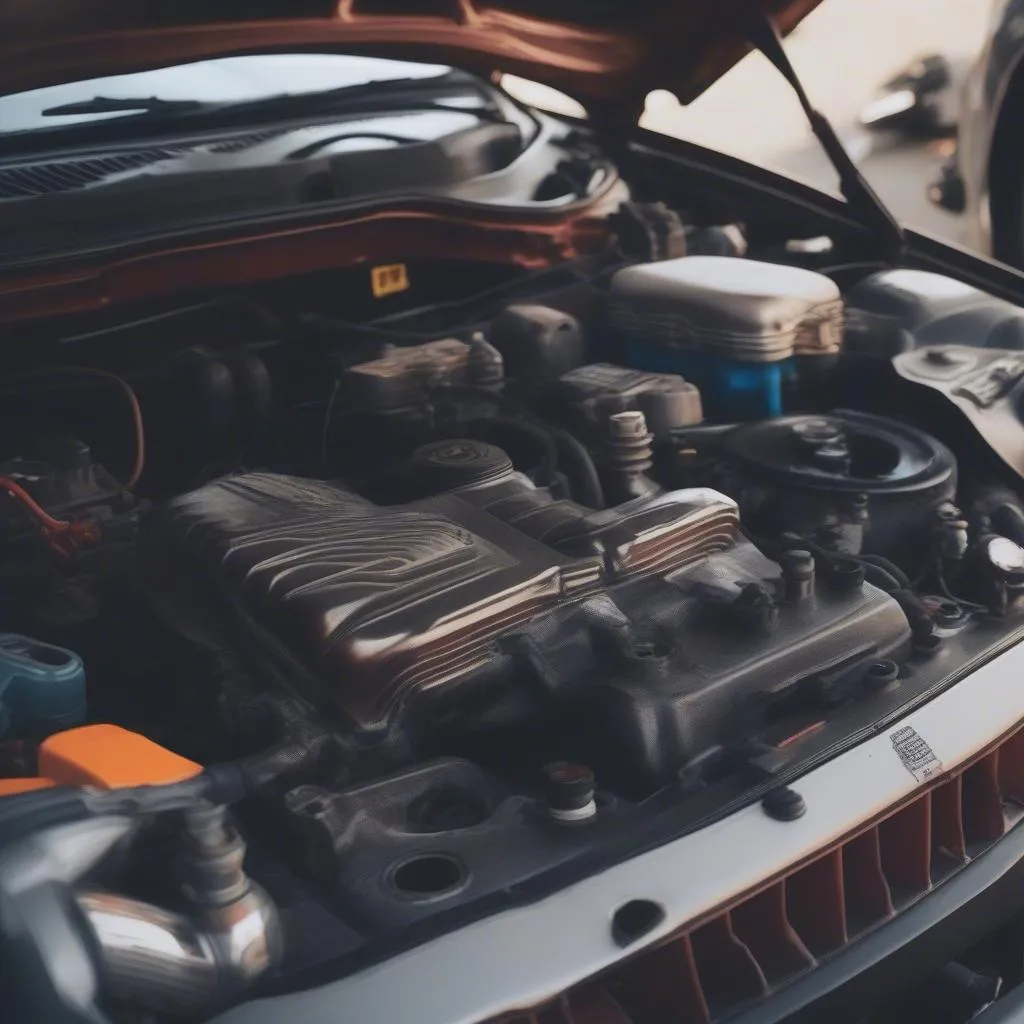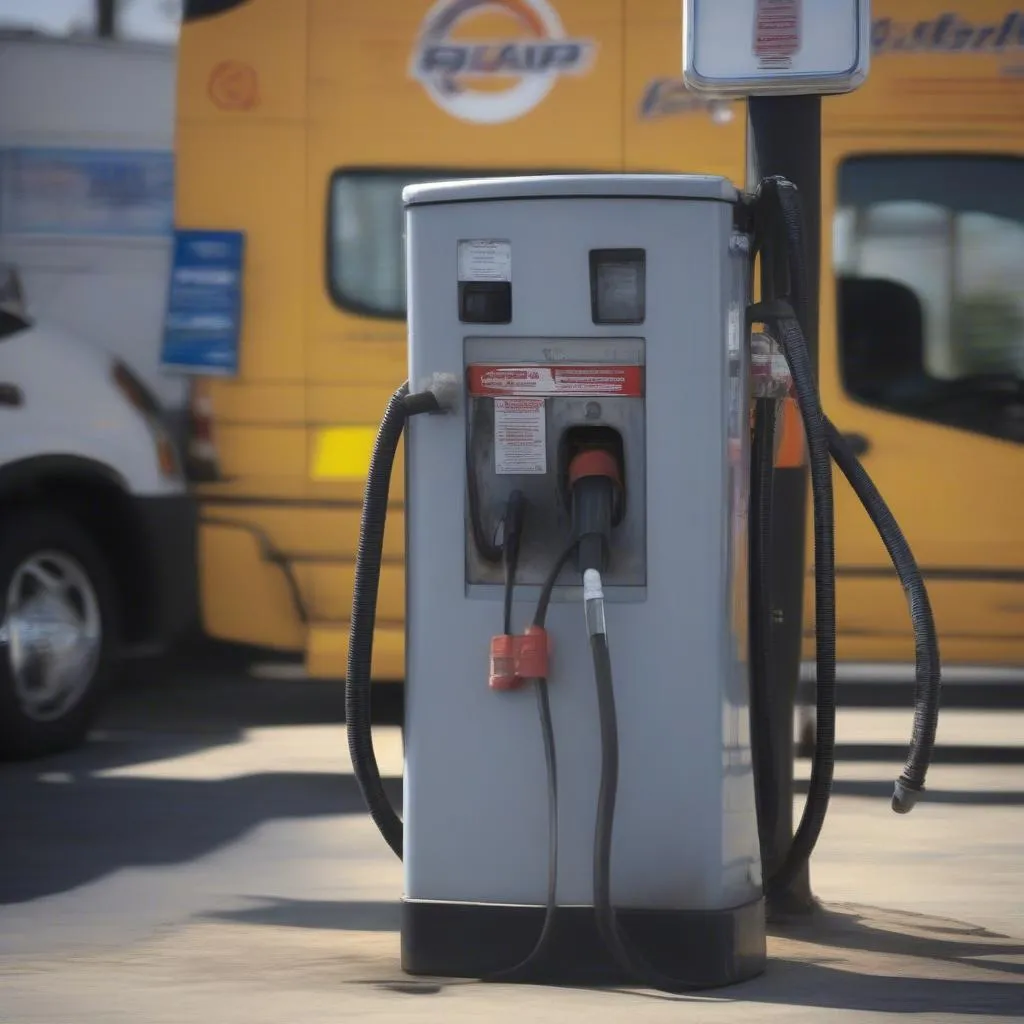Imagine this: you’re rushing to work, the morning sun is shining, but your car just won’t cooperate. You turn the key, the engine coughs, sputters, and refuses to start. This frustrating situation, known as hard starting, can leave you stranded and stressed. But understanding the underlying causes and recognizing the symptoms can help you pinpoint the problem and get your car back on the road.
Understanding the Problem: Why is Your Car Hard to Start?
From a mechanic’s perspective, hard starting usually signals a problem with one of the key components responsible for getting the engine running: fuel, spark, or compression.
From a technical standpoint, hard starting often arises from issues within the engine’s combustion process. It’s a complex process requiring a precise balance of fuel, air, and spark to ignite and create the power needed to move your vehicle. When any of these elements are out of sync, it can result in hard starting.
From an economic standpoint, hard starting can lead to unnecessary expenses and lost time. Replacing faulty components can be costly, and a stalled car can disrupt your schedule and potentially cost you money in lost wages.
Symptoms of Hard Starting: What to Look Out For
If your car struggles to start, keep an eye out for these telltale signs:
H2. Difficulty Starting in Cold Weather
Have you ever noticed your car taking longer to start on those chilly winter mornings? This is a common symptom of hard starting, especially for older vehicles. Cold temperatures can thicken the oil in your engine, making it harder for the starter motor to turn the crankshaft. It can also affect the fuel-air mixture, making it harder to ignite.
H3. Engine Cranks but Doesn’t Start
The engine cranks, you hear the starter motor turning, but it just won’t catch. This usually indicates a problem with the fuel system, spark system, or compression. It could be a clogged fuel filter, a faulty spark plug, or low compression due to a worn-out piston ring.
H3. Engine Starts but Dies Quickly
Your car starts, but sputters and dies within a few seconds or minutes. This can be a sign of a problem with the fuel pump, fuel injectors, or air intake system. It could also be an issue with the ignition system, such as a faulty ignition coil or spark plug.
H3. Rough Idle or Stuttering
Once your car starts, it idles rough, stalls, or stutters. This might be due to a problem with the fuel system, ignition system, or vacuum leaks. A clogged fuel filter, a faulty spark plug, or a leak in the intake manifold can all contribute to a rough idle.
H3. Engine Starts but Runs Poorly
Your car starts, but it runs poorly, with a lack of power or a noticeable hesitation during acceleration. This could be a sign of a problem with the fuel system, ignition system, or air intake system. A faulty fuel pump, clogged fuel injectors, or a faulty air flow sensor can all contribute to poor engine performance.
Identifying the Problem: Why is Your Car Hard to Start?
“Determining the root cause of hard starting requires a systematic approach,” explains renowned automotive engineer Dr. Mark Thompson in his book “Automotive Diagnostics: A Comprehensive Guide.”
Here are some common causes of hard starting:
H2. Fuel System Issues:
- Clogged Fuel Filter: A dirty fuel filter can restrict fuel flow, making it difficult for the engine to get enough fuel to start.
- Faulty Fuel Pump: A weak or failing fuel pump may not be able to deliver enough fuel to the engine.
- Clogged Fuel Injectors: Dirty fuel injectors can prevent fuel from being properly sprayed into the cylinders.
- Low Fuel Pressure: Insufficient fuel pressure can make it difficult for the engine to get the fuel it needs.
H2. Ignition System Issues:
- Faulty Spark Plugs: Worn-out or damaged spark plugs can prevent the spark needed to ignite the fuel-air mixture.
- Faulty Ignition Coil: A faulty ignition coil can prevent the spark plugs from receiving the necessary voltage.
- Faulty Ignition Wires: Damaged or cracked ignition wires can prevent the electrical current from reaching the spark plugs.
H2. Compression Issues:
- Worn Piston Rings: Worn piston rings allow combustion pressure to escape, leading to low compression.
- Valve Problems: Leaky or burnt valves can also reduce compression.
- Head Gasket Issues: A blown head gasket can cause compression loss and allow coolant to enter the combustion chamber.
H2. Other Factors:
- Faulty Battery: A weak or dead battery can’t provide enough power to start the engine.
- Faulty Starter Motor: A faulty starter motor may not be able to turn the engine over fast enough to start.
- Faulty Starter Relay: A faulty starter relay can prevent the starter motor from receiving power.
Diagnosing Hard Starting: How to Solve the Problem
You can’t diagnose the cause of hard starting just by the sound of the engine. It requires a systematic approach and a bit of know-how.
H2. Troubleshooting Hard Starting:
1. Check the Battery: Make sure the battery terminals are clean and tight, and that the battery has enough charge. A simple test with a voltmeter can help you determine if the battery is good.
2. Check the Starter Motor: Make sure the starter motor is working properly. You can check this by listening for the starter motor engaging when you turn the key. If you hear a clicking sound instead of the starter motor turning, it might be a faulty starter motor or a loose connection.
3. Check the Fuel System: Check the fuel filter for any signs of clogging. Also, check the fuel pressure by using a fuel pressure gauge. Low fuel pressure can indicate a faulty fuel pump.
4. Check the Ignition System: Inspect the spark plugs and wires for wear and tear. You can also test the spark plugs with a spark tester to ensure they’re firing properly.
5. Check for Vacuum Leaks: A vacuum leak can cause a lean fuel-air mixture, making it difficult to start the engine. Check for any visible cracks or holes in the intake manifold and hoses.
H2. Need Help?
If you’re not comfortable troubleshooting hard starting on your own, it’s best to consult a professional mechanic. They have the tools and expertise to diagnose the problem accurately and make the necessary repairs.
H2. Preventing Hard Starting
You can help prevent hard starting by following these tips:
- Regularly Maintain Your Vehicle: Regular oil changes, fuel filter replacements, and spark plug replacements can help prevent common causes of hard starting.
- Use High-Quality Fuel: Use high-quality fuel to avoid clogging your fuel injectors.
- Store Your Vehicle Properly: If you’re storing your vehicle for an extended period, make sure the battery is fully charged and the fuel tank is full.
Frequently Asked Questions:
- Q: What are some common symptoms of a bad fuel pump?
- A: A faulty fuel pump can cause a variety of problems, including hard starting, a weak engine, or even a complete failure to start. Other symptoms may include a decrease in fuel pressure, a noisy fuel pump, or a fuel leak.
- Q: What are some common signs of a bad spark plug?
- A: A failing spark plug can cause hard starting, a rough idle, misfires, and a decrease in fuel economy. It’s best to replace spark plugs as recommended by the manufacturer.
- Q: How often should I replace my fuel filter?
- A: The frequency of fuel filter replacements varies depending on the vehicle and driving conditions. It’s generally recommended to replace the fuel filter every 15,000 to 30,000 miles.
Related Articles:
- Learn more about vehicle hard-to-start issues here
- Discover how to diagnose and fix truck hesitation issues
- Explore our guide on how to test ICP pressure using a scan tool
Need Expert Assistance?
If you’re experiencing hard starting issues with your European car and need help diagnosing the problem, contact us at Whatsapp: +84767531508. We have certified technicians available 24/7 to assist you with your car’s electrical system and diagnostics tools.
Let’s get your car back on the road and keep you moving!
 Hard Starting Symptoms
Hard Starting Symptoms
 Diagnosing Hard Starting
Diagnosing Hard Starting
 Fuel System Issues
Fuel System Issues